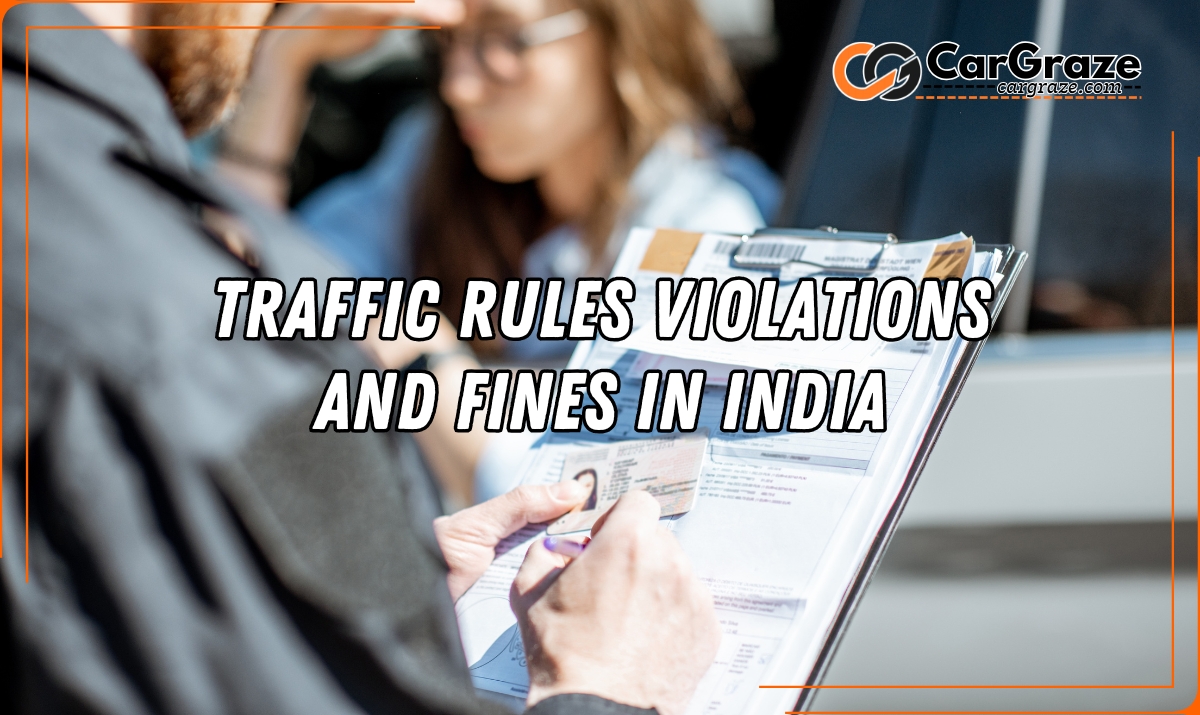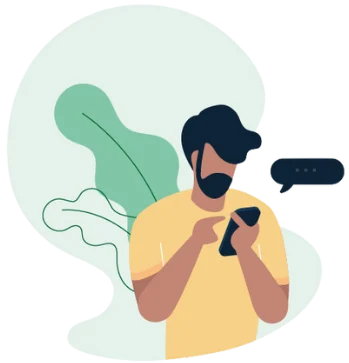
Understanding Traffic Violations and Fines in India: Your Complete Guide
Driving on Indian roads? Staying aware of traffic rules isn't just about avoiding fines; it’s about keeping yourself and others safe. With the Motor Vehicles Act, of 2019, penalties have become stricter. Let's explore the common violations, how to avoid fines, and your rights when stopped by traffic police.
Common Traffic Violations and Their Fines
Here are some everyday violations and the fines you may face under the Motor Vehicles Act, of 2019:
| Violation | Fine |
| Driving without a valid license | ₹5,000 |
| Over-speeding | ₹1,000 for LMV; ₹2,000 for MMV |
| Driving under the influence | ₹10,000 and/or imprisonment for first offense |
| Riding without a helmet | ₹1,000 and license suspension for 3 months |
| Using a mobile phone while driving | ₹5,000 and/or imprisonment for up to 1 year |
| Signal jumping | ₹1,000 to ₹5,000, with possible license disqualification |
| Driving without insurance | ₹2,000 (first offense); ₹4,000 for repeat offenses |
Tips to Avoid Traffic Fines
1. Carry All Documents
- Keep your driving license, insurance, registration certificate (RC), and PUC certificate handy. Apps like mParivahan or DigiLocker are great for storing digital copies.
2. Follow Road Rules
- Stick to speed limits.
- Respect traffic signals and road signs.
3. Use Safety Gear
- Wear ISI-mark helmets while riding two-wheelers.
- Buckle up, even in the rear seats of cars.
4. Plan Your Drive
- If you’re planning to drink, arrange for a cab or designated driver to avoid DUI charges.
5. Maintain Your Vehicle
- Ensure that your vehicle's lights, brakes, and horn are in proper working condition.
How to Pay Traffic Fines Online?
Avoid standing in long queues by paying your fines online. Here’s how:
- Visit the official state traffic police website or the Parivahan e-Challan portal.
- Enter your vehicle number or challan number.
- Check the fine details and proceed with payment via debit card, credit card, or net banking.
- Keep the receipt for your records.
What to Do if You Receive the Wrong Challan?
Mistakes happen, and you might receive the wrong challan. Here’s how to handle it:
- Verify the Details: Cross-check the challan for errors in vehicle number, date, or location.
- Raise a Complaint: Contact your local traffic police office or use the Parivahan portal to file a complaint.
- Submit Proof: Provide evidence (e.g., CCTV footage, toll receipts) to contest the challan.
What Happens if You Don’t Pay Your Fine on Time?
Failing to pay fines can lead to serious consequences:
- Additional penalties may be imposed.
- Your case could be referred to court, leading to potential legal action.
- Repeated non-payment could result in suspension of your driving license.
How to Check Traffic Fines Online?
To check if you have pending fines:
- Visit the Parivahan e-Challan website or your state traffic police portal.
- Enter your vehicle registration number or license details.
- View pending fines and their details.
Limiting the Number of Challans Per Day and Month
The law does not impose a specific limit on the number of challans per day or month. However:
- Avoid repeated violations; it can lead to harsher penalties.
- Multiple offenses may impact your driving record and lead to license suspension.0
Your Rights When Traffic Police Stop You
- Request Identification: Traffic officers must carry identification. Ask for their name and ID if needed.
- No Physical Seizure: Officers cannot take your keys forcibly.
- Demand an Official Receipt: If fined, ensure the challan is issued with the officer’s signature.
- Use Digital Payment: Ask for digital payment options to avoid cash transactions.
- You Can Contest: If you believe you’re wrongly fined, refuse to pay on the spot and contest it in court.
Pro Tips: Avoiding a Challan
- Polite Communication: A calm, respectful conversation with the officer can sometimes resolve minor issues without fines.
- Show Proof of Compliance: If you have the required documents digitally, show them promptly.
- Explain Genuine Situations: For unintentional violations (e.g., medical emergencies), explaining your situation might work in your favor.
Note: Never try to bribe an officer - it’s illegal and can lead to bigger troubles.
Final Thoughts
Traffic rules aren’t just about avoiding fines - they’re about ensuring everyone’s safety. Knowing the rules, your rights, and how to handle situations with traffic police can save you a lot of hassle. Drive safely, keep your documents updated, and remember that following the law is always the best way to avoid fines.
Got more questions about traffic rules? Share them in the comments below!



Comments